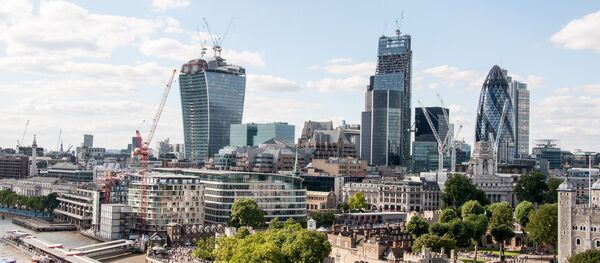The Japanese task force, headed by Deputy Chief Cabinet Secretary Koichi Hagiuda, cites concerns that Japanese financial institutions may have to apply for corporate status in the EU, if they lose the right to automatically do business across the EU from their base in the UK.
The UK is currently a clearing center for the euro, and EU agencies such as European Medicines Agency are currently based in London, but would be forced to move after Brexit. This would pose a risk to the pharmaceutical industry and medical research in the UK, Japan says.
The report refers to the prospect of Japanese companies such as Nissan, which has a factory in the UK, moving their operations elsewhere after Brexit. For example, the carmaker fears that auto parts which are sourced from other parts of the EU could be delayed or subject to extra customs charges at border control.
Yelena Leonteva, an economist at the Institute of World Economy and International Relations, told Sputnik that Japan's efforts to warn the UK about the consequence of cutting ties with the EU, are an attempt to reassure Japanese business.
"The UK government's decision has frightened Japanese business. After all, this has caused uncertainty and a natural desire, normal for business, to get away from this uncertainty."
However, Leonteva said that the process of reorienting business away from the UK may direct Japanese companies to Asia, a process which has already begun.
"I think moving your base is a long-term process. But on the other hand, Japan has already focused its investments above all in the Asia-Pacific region. The biggest investments of Japanese corporations go there, that's where a large part of Japan's manufacturing base is moving to," she said.
"Japanese exporters decided to relocate a long time ago, all the more often exchanging their base in Japan for another Asian country. Today, it is a lot cheaper and more convenient there in a lot of ways for Japanese business."
However, Leonteva said that despite its fears, Japan is unlikely to suffer significantly as a result of Brexit. Rather than a short-term catastrophe, the country faces long-term economic issues.
"There is very low growth today in Japan. In part this is because capital is leaving the country, above all for those production bases abroad. Partly it is because Japan has a very bad demographic situation, the population is ageing and they have less savings. The older generation is handing its savings to the younger generation, which is starting to spend them. But all these are long-term trends. This year there will be about 1.5 percent growth in Japan. The Japanese economy can't grow any more than that, but it's not a catastrophe for Japan," Leonteva said.




